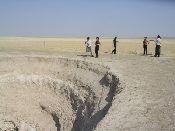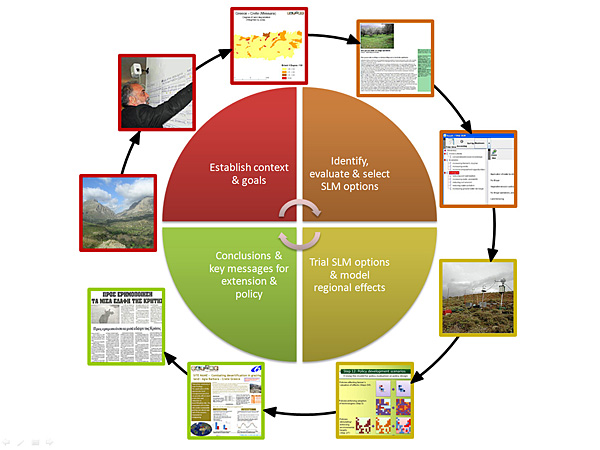Crete, Greece
|
The four phase methodology that links the »Research themes was followed in Crete, producing results that are specific to this study site.
|
|||||||||||||||||||||||
Study sites

Acknowledgement
The DESIRE project was
|
DESIRE brought together the expertise of
26 international research institutes
and non-governmental organisations.
This website does not necessarily
represent the opinion of the
European Commission. The European
Commission is not responsible for
any use that might be made of the
information contained herein. 
 Crete, Greece
Crete, Greece